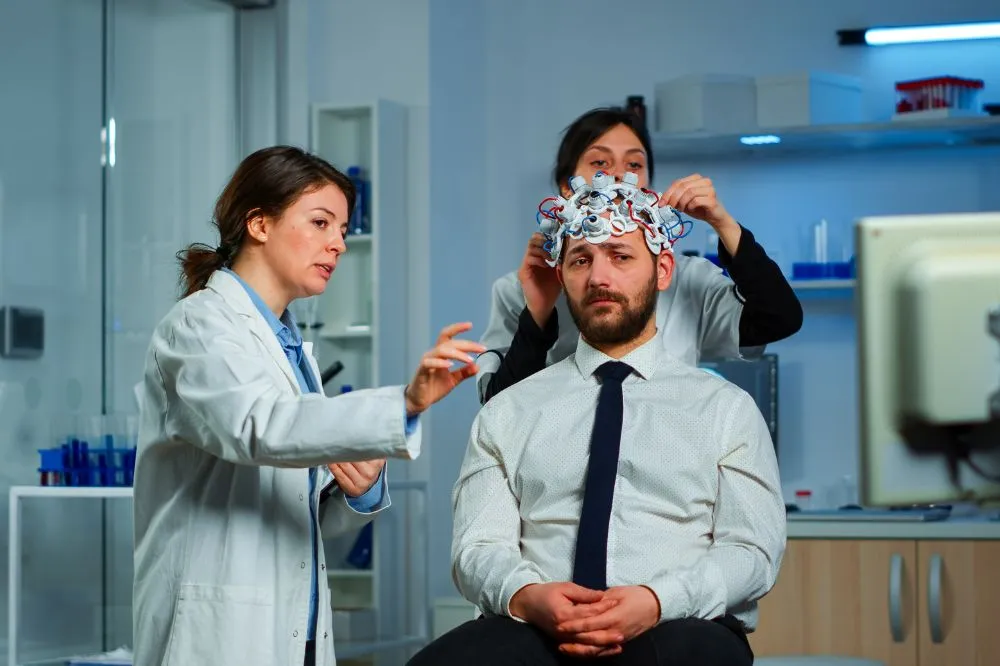Summary: In recent years, researchers have started realizing that Alzheimer’s shares many traits with other metabolic disorders. It appears the metabolic changes in the body cause microglial dysfunction, inflammation, and thus amyloid-beta protein accumulation and Alzheimer’s. Therefore, the new study in mice models shows that using PPAR agonists may help prevent and even reverse early Alzheimer’s.
Already more than 6.5 million US adults are living with Alzheimer’s. However, what is even more worrisome is that prevalence of Alzheimer’s is increasing. Alzheimer’s causes not only premature death but also years of disability.
Despite more than a century of research, researchers are still struggling to answer various questions regarding Alzheimer’s. It is unbelievable that despite so much research, doctors know very little about Alzheimer’s.
They do not know what causes Alzheimer’s. They even do not know much about the disease’s progress. That is why they are unable to find a remedy that may help prevent or considerably treat the condition.
Of course, they know that Alzheimer’s is caused by the accumulation of misfolded proteins, that is, amyloid and tau proteins. However, they still do not know why it occurs and at what stage it starts happening.
When it comes to the causes of Alzheimer’s, they remain unclear. This only suggests that Alzheimer’s probably occurs due to many reasons like genetics, aging, exposure to toxins, infection, and metabolic disorders. Some of these causes are preventable, others not.
Since Alzheimer’s is rising at an alarming rate, researchers think that it has a strong association with metabolic disorders. Moreover, since metabolic disorders like diabetes are also rising at an alarming rate, some experts call it “type 3 diabetes”.
Now some researchers think that metabolic disorders might be the prime cause of Alzheimer’s. So reducing the prevalence of metabolic disorders may also help minimize Alzheimer’s.
Another vital development in recent years has been the shift of focus from neurons to glial cells. Glial cells are more abundant in the brain and play an important role in the brain’s immunity and inflammation. Thus, researchers think they have been focusing on the wrong cells all these years. It is glial cell dysfunction due to metabolic changes in the body that is causing the accumulation of faulty proteins and, thus, dementia.
From studies in diabetes and other metabolic disorders, researchers know that peroxisome proliferator-activating receptors (PPAR) play a vital role in metabolic disorders. Hence, researchers are looking for potent PPAR agonists to act on these receptors. Researchers think that PPAR agonists can help reduce Alzheimer’s risk.
In the new study, researchers started testing a novel PPAR agonist called DTMB. This new chemical can suppress brain inflammation and thus reduce the accumulation of amyloid and tau proteins in the brain.
In their lab experiments in mice models, researchers noticed that DTMB lowers the production of proinflammatory cytokines by microglia, one of the most abundant immune cells in the brain.
It appears that reducing microglial inflammatory responses can help significantly. It can slow down or even prevent the accumulation of faulty proteins, thus stopping the chain reaction that occurs due to the accumulation of these misfolded proteins.

In the study, researchers found that feeding mice with DTMB for three months could help reverse many signs of dementia and could help improve memory and cognitive function. Further, they also found reduced levels of amyloid-beta protein. Additionally, they found significantly reduced brain inflammation.
Researchers think their study could be of significant value since developing PPAR agonists are relatively simple drugs. Furthermore, many drugs are already used in clinical practice that can influence PPAR. Additionally, many other molecules like DTMB are known to be quite good at it. Hence, researchers need to continue their studies in this direction.
It is our mission to bring real hope and transformational change to patients who would otherwise be consigned to a lifetime of medications, doctor’s visits, and suffering. We expose misaligned incentives and return the power of health to the individual. We believe empowered individuals change their communities. We use a combination of lifestyle intervention, medication management, and emerging scientific research to help our patients. When you are ready or have questions, reach out.
Medical Disclaimer: Keep in mind that the content provided is not direct medical advice for patient care, but is provided for thoughtful discussion.






